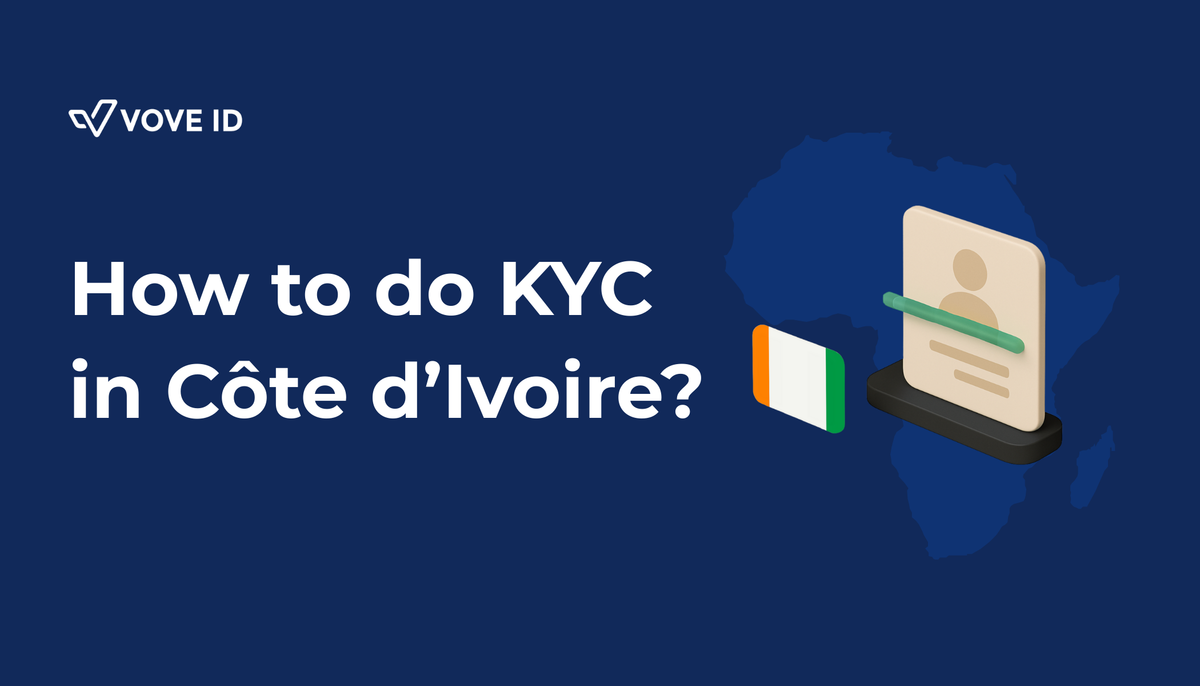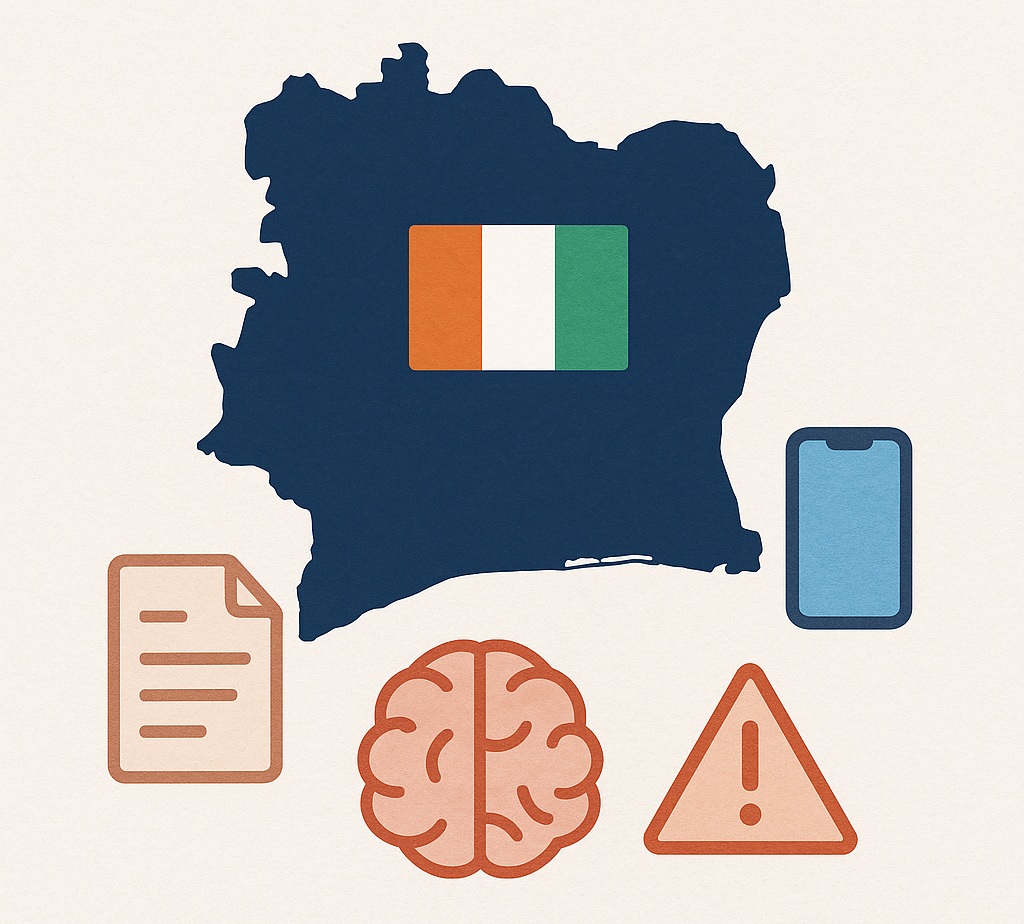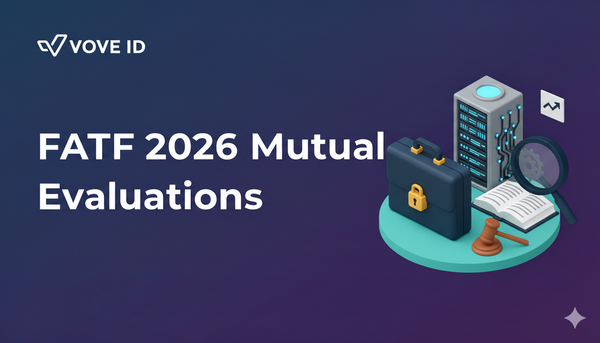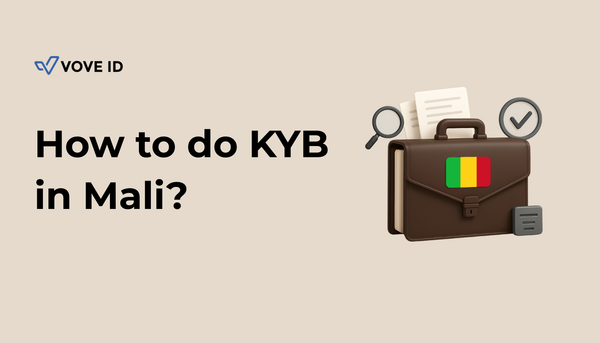KYC Compliance in Côte d'Ivoire: 2025 Guide for Regulated Businesses
Explore Côte d'Ivoire’s KYC regulations for 2025, including CENTIF-CI, BCEAO, FATF compliance, and digital onboarding. Discover how eKYC solutions support AML efforts and financial inclusion across West Africa.

Introduction: Why KYC Matters in Côte d'Ivoire
Côte d'Ivoire is a driving force in West Africa’s financial landscape, fueled by a booming fintech sector, mobile-first banking, and robust financial inclusion strategies. With over 17.5 million internet users and a 45% mobile money penetration rate as of 2024, the country leads the UEMOA (West African Economic and Monetary Union) in digital payments. This digital transformation makes Know Your Customer (KYC) and Anti-Money Laundering (AML) compliance in West Africa critical for preventing financial crime, meeting regulatory standards, and building consumer trust.
For fintechs, telecoms, and digital platforms, mastering customer due diligence in Côte d'Ivoire and digital onboarding in Côte d'Ivoire is both a legal necessity and a growth enabler. This guide outlines the 2025 KYC regulatory framework, practical compliance steps, eKYC innovations, and solutions to implementation challenges.
Regulatory Landscape: Who Oversees KYC in Côte d'Ivoire?
Côte d'Ivoire’s KYC ecosystem is shaped by national and regional regulations, enforced by key bodies:
- CENTIF-CI (Cellule Nationale de Traitement des Informations Financières): The Financial Intelligence Unit (FIU) collects and analyzes suspicious transaction reports (STRs) to combat money laundering and terrorist financing. [Source: centif.ci]
- BCEAO (Banque Centrale des États de l'Afrique de l'Ouest): The UEMOA central bank enforces AML/CFT regulations for banks, fintechs, and mobile money providers. [Source: bceao.int]
- GIABA & FATF: As a GIABA member, Côte d'Ivoire aligns with the Financial Action Task Force’s (FATF) 40 Recommendations. FATF’s 2023 evaluation praised progress in AML compliance in West Africa but urged stronger terrorist financing oversight. [Source: fatf-gafi.org]
- National AML/CFT Law: Law No. 2016-992 of 14 November 2016, amended in 2023, incorporates FATF’s 40 Recommendations, mandating KYC, risk assessment, record-keeping, and STR submission.
- Data Protection Law: The Autorité de Protection des Données à Caractère Personnel (ARDP) enforces the 2013 Data Protection Law, ensuring secure handling of KYC-related personal data.
These frameworks govern banks, neobanks, mobile money operators, crypto platforms, and telecom-based digital wallets.
KYC Requirements in Côte d'Ivoire: A Practical Breakdown
Regulated entities must perform Customer Due Diligence (CDD) to verify identities, assess risks, and maintain records.
For Individuals
- Full Name, Date/Place of Birth, Nationality: Verified via official ID.
- Residential Address: Validated with utility bills, lease agreements, or local authority letters.
- Official ID: Primarily the Carte Nationale d’Identité (CNI), biometric passport, or residence permit issued by ONECI.
- Source of Funds: Required for high-risk profiles to prevent money laundering.
For Legal Entities
- Business Registration Certificate: Issued by CEPICI.
- Company Statutes and Ownership Structure: Detailing governance and beneficial owners.
- Tax Identification Number (TIN): Provided by the tax authority.
- Details of Directors & Beneficial Owners: Including IDs and address proof.
- Board Resolution: Authorizing financial service use.
- Business Address: Verified via physical or postal documentation.
Enhanced Due Diligence (EDD)
High-risk clients, such as Politically Exposed Persons (PEPs) or cross-border entities, require:
- Senior management approval.
- Source of wealth and funds verification.
- Continuous transaction monitoring to flag suspicious patterns.
For example, a PEP managing a cross-border remittance platform needs rigorous fund source checks and real-time monitoring.
Record-Keeping Obligations
Law No. 2016-992 mandates retaining KYC and transaction records for at least 7 years after the client relationship ends, accessible for CENTIF-CI and BCEAO audits.
The Rise of eKYC: Transforming Digital Onboarding
Côte d'Ivoire’s digital infrastructure is reshaping digital onboarding in Côte d'Ivoire through mobile adoption and biometric IDs. Key 2024 stats:
- 17.5M internet users (60% of population).
- 45% mobile money penetration (e.g., Orange Money, MTN Mobile Money).
- Over 14M biometric ID cards issued by ONECI, covering over 80% of adults. [Source: usesmileid.com]
Key eKYC Trends
- Biometric Verification: Facial recognition, fingerprint matching, and liveness checks enhance security.
- API-Based ID Validation: Real-time CNI lookups via ONECI’s database.
- Mobile-First Onboarding: Optimized for smartphones, with 98% of internet access via mobile devices.
- AI-Driven Fraud Detection: Identifies anomalies, fake documents, and spoofing attempts.
Benefits
- Speed: Onboarding in minutes, not days.
- Cost Efficiency: Reduces manual verification costs.
- Financial Inclusion: Enables unbanked users to access services.
- Fraud Prevention: Biometrics and AI minimize identity fraud.
Regional data shows eKYC boosts conversion rates by up to 30%, making it essential for scaling businesses.
Challenges in Implementing KYC
Despite advancements, businesses face hurdles in achieving customer due diligence in Côte d'Ivoire:
- Document Fraud: Counterfeit IDs persist, though biometrics help.
- Data Mismatches: ONECI’s database may conflict with older registries, causing verification errors.
- Rural Connectivity Gaps: Only 40% of rural areas have reliable internet, limiting eKYC adoption.
- Cost of Compliance Tech: API and AI solutions are costly for startups.
- Regulatory Updates: Frequent changes from CENTIF-CI, BCEAO, and FATF require ongoing adjustments.
Hybrid models blending automated and manual verification are key to balancing reach and compliance.
How VOVE ID Helps Businesses in Côte d'Ivoire
VOVE ID delivers scalable eKYC solutions for fintechs, digital wallets, lending platforms, and trading apps across West Africa, tailored to local compliance needs. Key capabilities:
- Real-Time Identity Verification: Validates CNI, passports, and permits via ONECI integration.
- Fraud Detection: Uses facial biometrics and liveness checks to prevent spoofing.
- Mobile-First and API-Driven Onboarding: Localized for French-speaking users, aligning with Côte d'Ivoire’s linguistic context.
- Compliance Alignment: Meets CENTIF-CI, BCEAO, and ARDP standards, with encrypted data storage and user consent logging.
Fintechs offering lending, mobile wallets, or trading platforms can use VOVE ID to verify identities instantly, detect fraud, and meet AML thresholds across Abidjan and rural districts. VOVE ID ensures speed, trust, and compliance in one platform.
📌Did You Know?
Côte d'Ivoire’s biometric ID system covers over 80% of the adult population, enabling high eKYC accuracy and supporting financial inclusion for the 35% unbanked population.
📶 17.5M+ internet users (60% of population)
📱 45% mobile money penetration
🆔 14M+ biometric IDs issued
🏦 35% unbanked population
FAQ: KYC in Côte d'Ivoire

❓ What documents are accepted for KYC?
CNI, biometric passport, or residence permit; utility bills or lease agreements for address proof.
❓ Is eKYC legally accepted?
Yes, with biometric checks, audit logs, and ARDP compliance.
❓ Is KYC mandatory for mobile money platforms?
Yes, per BCEAO guidelines, all financial services must implement KYC.
❓ What are the penalties for non-compliance?
Fines, license suspension, or legal sanctions by CENTIF-CI or BCEAO, based on severity.
❓ How long must records be kept?
At least 7 years after the customer relationship ends.
Conclusion: Mastering KYC for Growth and Compliance
KYC compliance in Côte d'Ivoire is a foundation for trust, fraud prevention, and financial inclusion in a rapidly digitizing market. eKYC solutions like VOVE ID, with biometric verification, AI analytics, and ONECI integration, empower fintechs, digital wallets, and mobile-first services to meet CENTIF-CI, BCEAO, and FATF standards while driving growth. Embrace smarter digital onboarding in Côte d'Ivoire to lead in 2025.




